Families of those killed in rash accidents caused by minors say their grief is deepened by delay in justice, leniency of law towards underage accused. Is it finally time to relook at the Juvenile Justice Act?
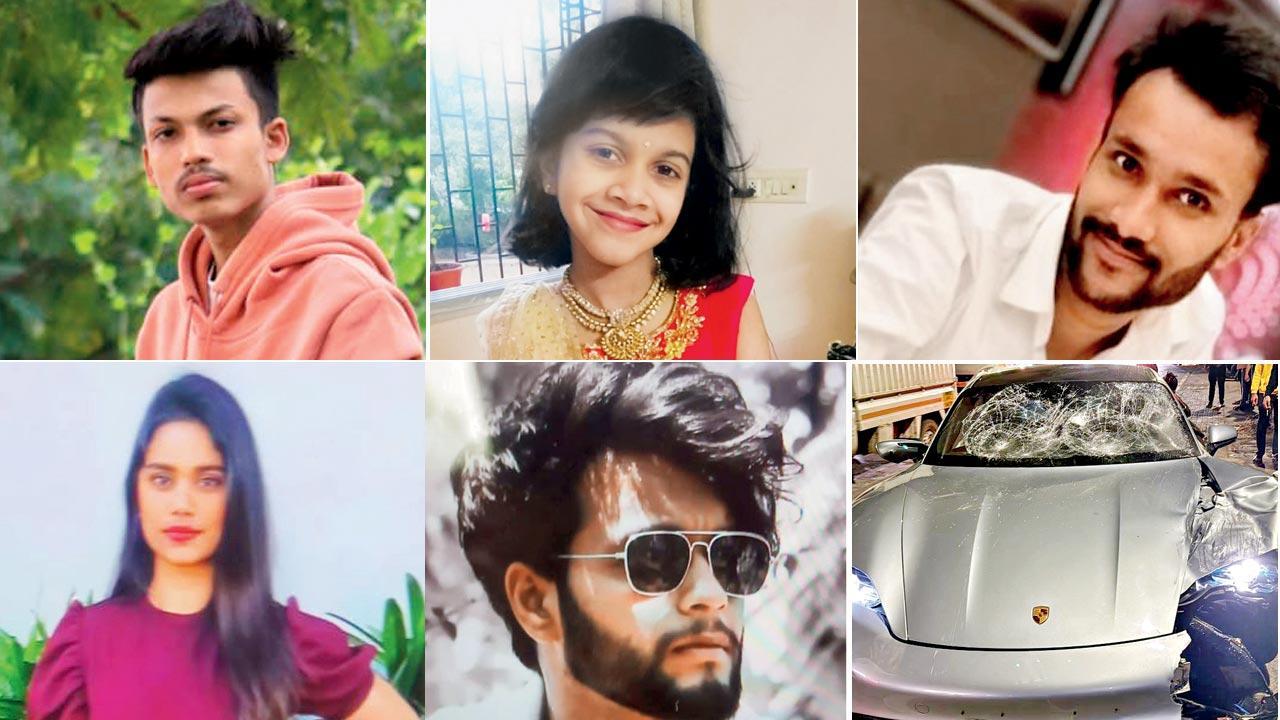
Shubham Rawat, 21, Malad, killed on September 26, 2023, when a minor’s car slammed into him; Disha Amberkar, 12, Mulund, killed on May 11, 2023, riding pillion on a scooty driven by a minor; Irfan Sheikh, 32 Mazgaon; killed on May 23, 2024, when a minor on bike crashed into him; Anish Awadhia, 24, and Ashwini Koshta, 24 Pune; were killed on May 19, 2024, in the Porsche accident; The Porsche Taycan driven by the minor that crashed into Anish Awadhiya and Ashwini Koshta riding a bike
The 11th of this month marked one year since the Amberkar family lost their 12-year-old daughter, Disha. She had gone for a joyride with a 16-year-old in Mulund’s Navghar area at 3.30 pm in May, 2023. “The bike slipped, and both the girls fell,” says Vishal, Disha’s father. “The rider got away with a few scratches, but Disha was bleeding from the head and unconscious. She was rushed to a clinic, but it didn’t have the equipment required to treat her.”
She was rushed to a second hospital, but eventually died of brain haemorrhage. The two sets of parents crossed paths in the hospital. “They left when my wife got there,” says Amberkar. “They didn’t ask where we are taking my daughter or how she is. They didn’t see if they could help; they should have shown some accountability.”
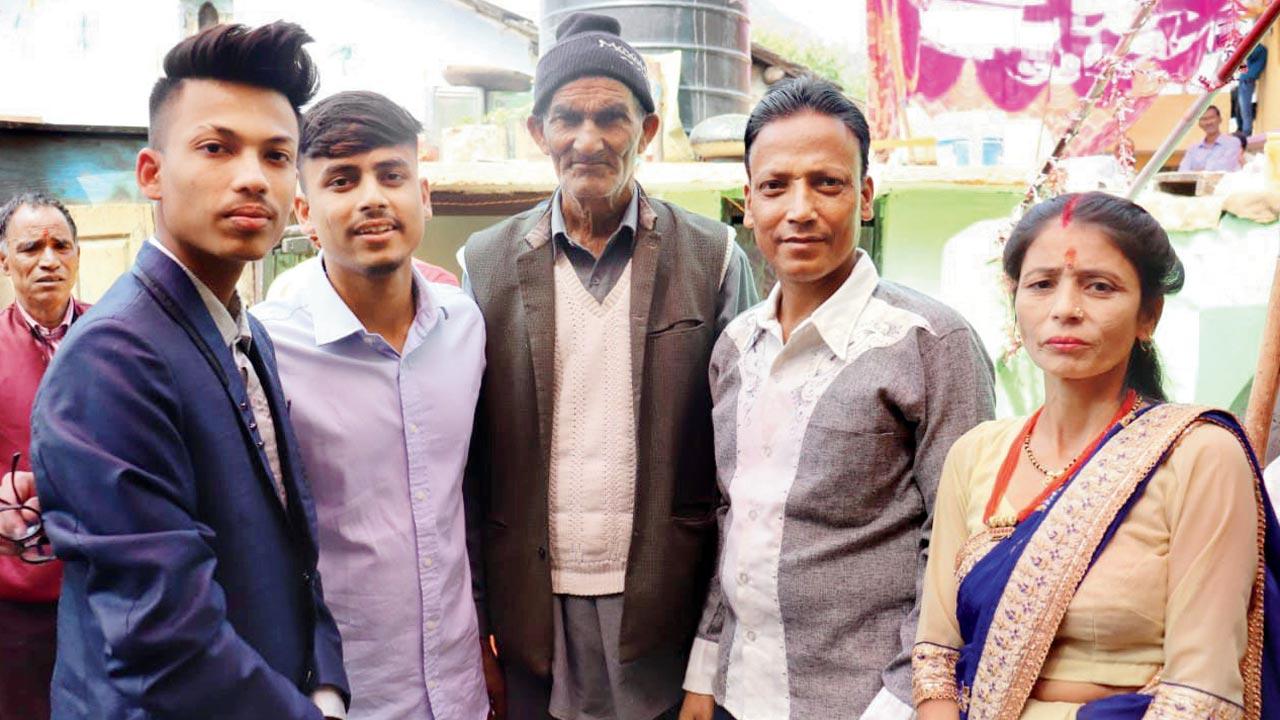 Shubham Rawat (left), with his family. His younger brother Laxman can be seen standing next to him
Shubham Rawat (left), with his family. His younger brother Laxman can be seen standing next to him
The teenager’s father, Ambar Dombe, was charged under the relevant Indian Penal Code sections for allowing unauthorised persons to drive a vehicle, rash driving, and causing death by negligence. But the devastation of losing a child has made it hard for the father to make multiple rounds of the police station and court. “Switching to that mode and then going back to regular life is difficult,” he says, “I hear we will have a hearing in Mulund court soon.”
The Pune Porsche hit-and-run case has again brought up the long burning question: On whom does accountability rest when a minor commits a heinous crime of ‘adult’ proportions. On social media, demands have been made for the teenager to be tried as an adult as juvenile justice laws prioritise rehabilitation over punishment. The landmark case that underlined this loophole was the gang rape of Jyoti Singh in Delhi in 2012: The underaged man among her six rapists, who had inserted a rod into her, was sentenced to only three years imprisonment in a reform facility, while the rest were given capital punishment.
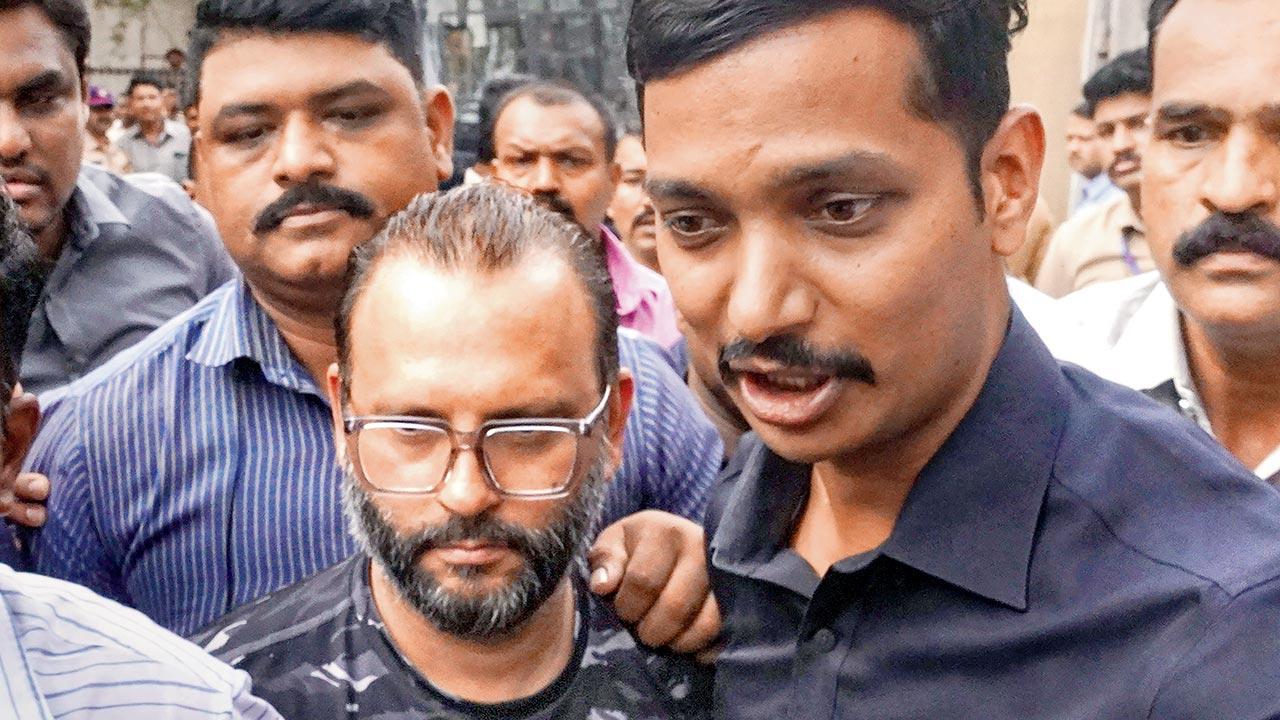 Vishal Agarwal, father of the Pune Porsche driver, was finally arrested from Chhatrapati Sambhajinagar (Aurangabad) on May 21
Vishal Agarwal, father of the Pune Porsche driver, was finally arrested from Chhatrapati Sambhajinagar (Aurangabad) on May 21
As a direct result of the Jyoti Singh case, the Juvenile Justice (Care and Protection of Children) Act was amended in 2015 to permit children aged 16 to 18, who are accused of committing heinous crimes, to be tried and sentenced as adults.
“Heinous crimes are those offences,” explains Supreme Court advocate Rizwan Siddiquee, “for which the minimum punishment under the Indian Penal Code or any prevailing penal law is imprisonment up to seven years or more. There have been numerous instances where minors have faced trial as adults, especially in cases of rape and murder.”
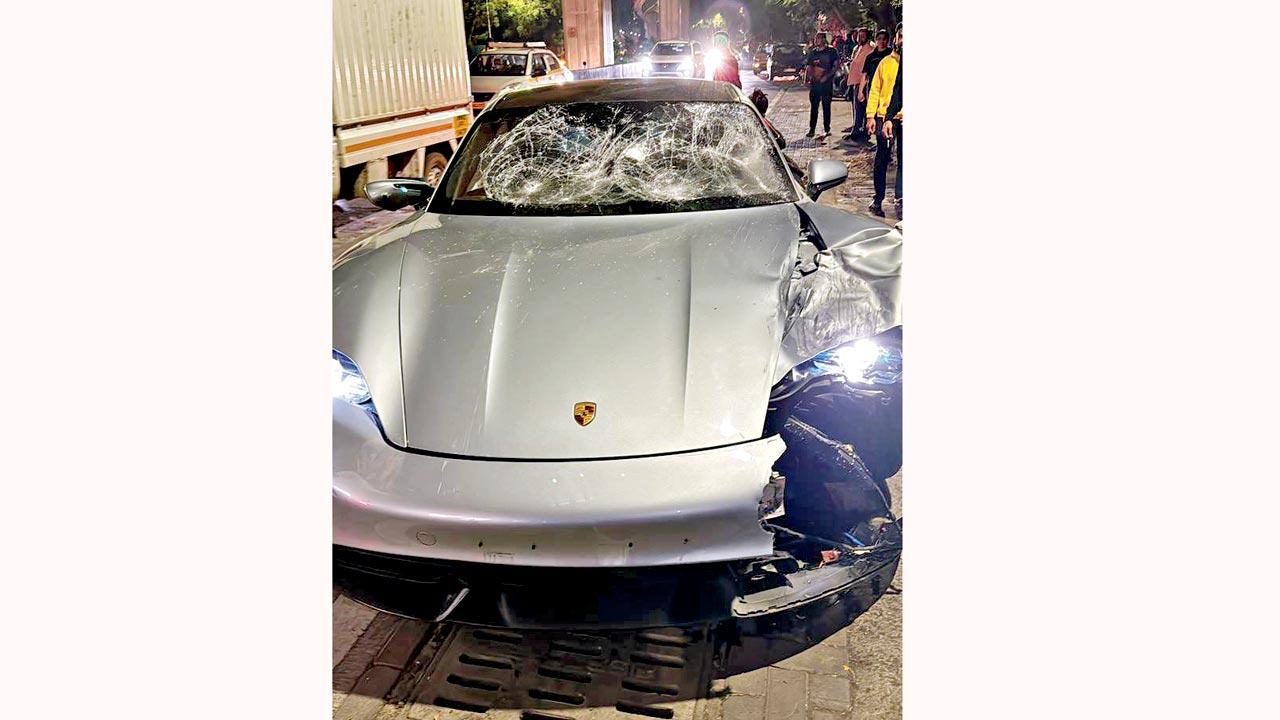 The Porsche Taycan that was in the May 19 accident at Pune’s Kalyani Nagar, killing two while four sustained minor injuries
The Porsche Taycan that was in the May 19 accident at Pune’s Kalyani Nagar, killing two while four sustained minor injuries
In the Pune Porsche case, details drawn out and verified by intrepid reporters, have given weight to the public trial. The teenager is a scion of a real estate family, driving—sans licence—a car that costs Rs 2.5 crore without registration or verified licence plate. That he was going at a speed of over 200 kmph, after spending Rs 48,000 at a bar with two friends in just 90 minutes.
The judicial system seemed prepped to let the privileged get away with literal murder, when it came out that the juvenile was granted bail within 15 hours of arrest. The conditions of his release included writing a 300-word essay of retribution, assisting the Traffic Police for 15 days, and seeking psychiatric help for alleged alcohol addiction.
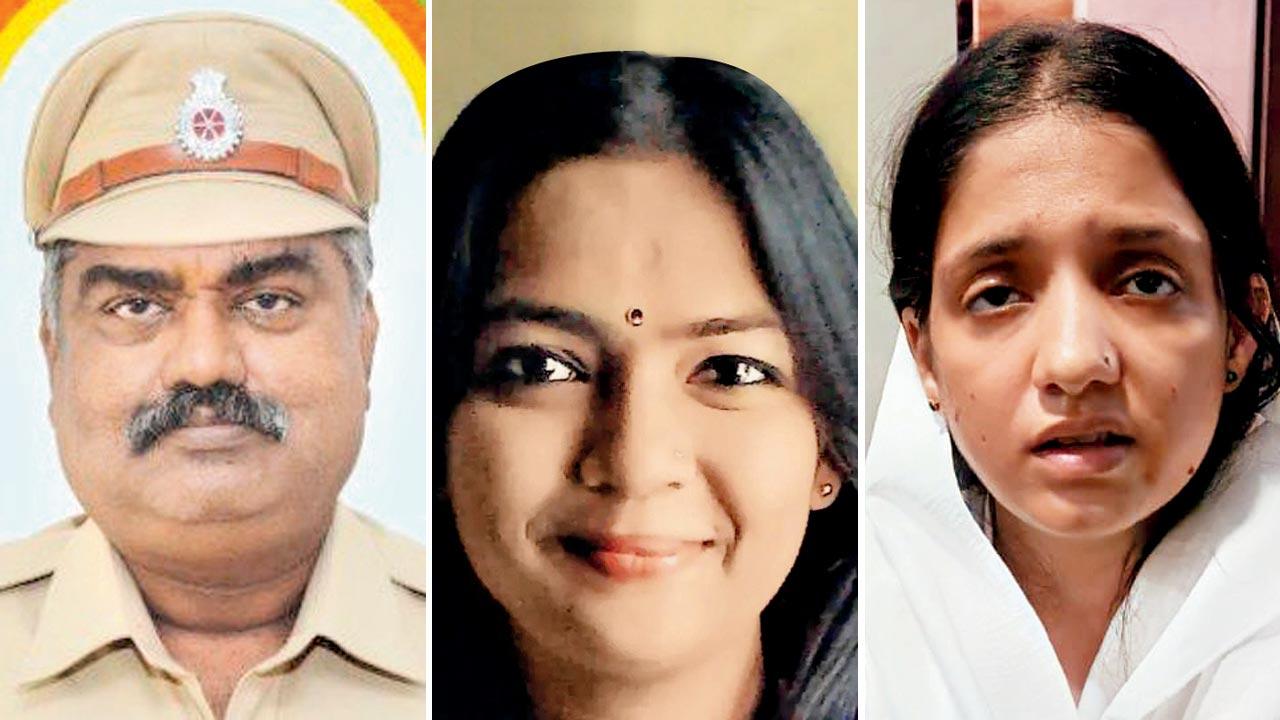 Sanjay Sasane, Savita Randhe and Amreen Sheikh
Sanjay Sasane, Savita Randhe and Amreen Sheikh
Attempts were made to position the family chauffeur, a la camp movies of the Manmohan Desai genre, as the perpetrator of the crime. At the time of this report going to print, the grandfather had been arrested on charges of kidnapping and wrongful confinement of the driver. There were allegations of the family using political and underworld connections to put pressure on the police to dilute the charges against the boy, who allegedly got fed pizza while waiting in police custody.
Only four months shy of turning 18, the young man’s privilege spoke louder than any retributory essay. And yet, only last year, the state government strengthened penalties for underage driving to tackle exactly such accidents: A fine of R25,000 on the parents, and no driving licence until 25 years of age.
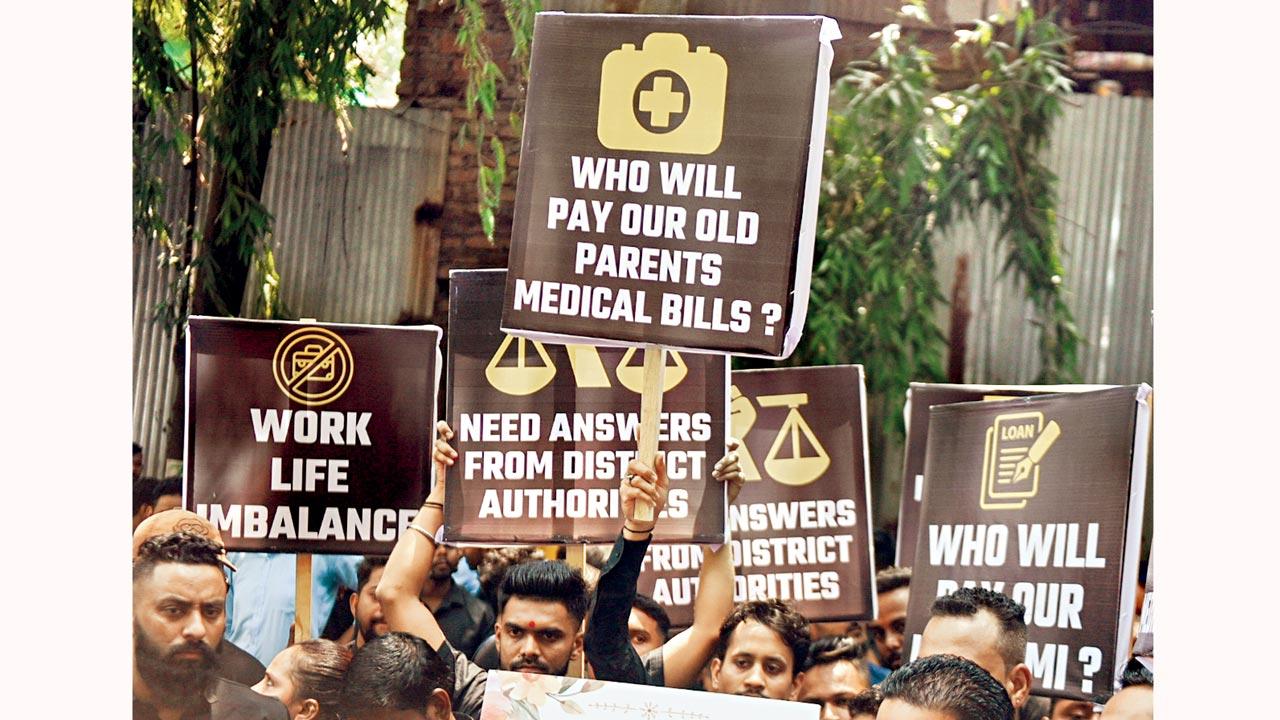 Staff of different pubs stage a protest after action was taken against illegal pubs in the city
Staff of different pubs stage a protest after action was taken against illegal pubs in the city
Under media and public pressure, the teen’s father, Vishal Agarwal, was finally arrested under relevant IPC Sections for wilful neglect of a child, along with the sections related to supplying a child with intoxicating liquor or drugs. As in Disha’s case—but only under pressure—the parents have been held accountable for their child’s offences.
The teen is now in a child observation home, awaiting news of whether he will face trial as an adult or juvenile.
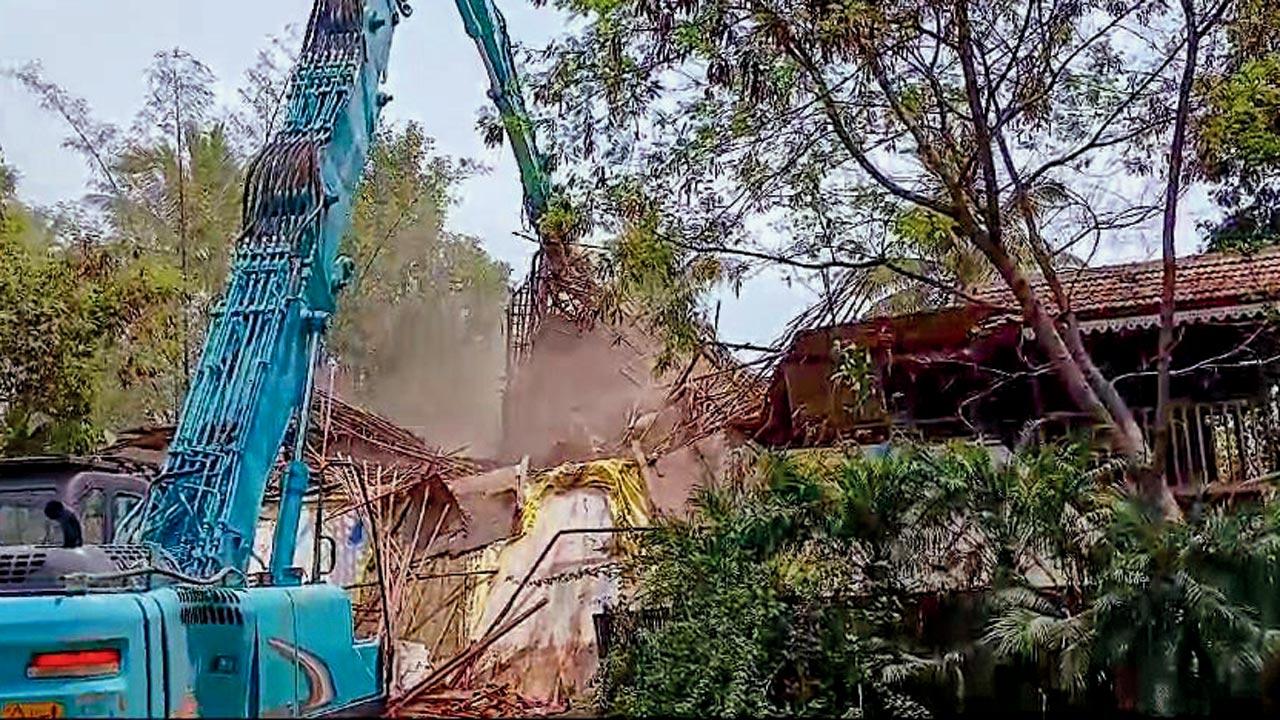 The Pune Municipal Corporation (PMC) began razing all illegal bars in the city after the accused in Pune Porsche accident was served at two bars, despite being underage. Pics/PTI
The Pune Municipal Corporation (PMC) began razing all illegal bars in the city after the accused in Pune Porsche accident was served at two bars, despite being underage. Pics/PTI
This will be decided by the Juvenile Justice Board. Its report will take into account the minor’s social background, their parents’ profession, whether they have an addiction, as well as a risk assessment and psychological profile. This could take up to 90 days.
Juvenile justice laws recognise that minors, if acquitted, have their entire lives ahead of them. Participation in a trial, when they are not yet adults, can significantly impact their social and psychological development. “Within juvenile justice laws,” Siddiquee adds, “there are specific age divisions that determine how different age groups should be treated. For teenagers in the 16 to 18 age group, the approach is relatively more stringent.”
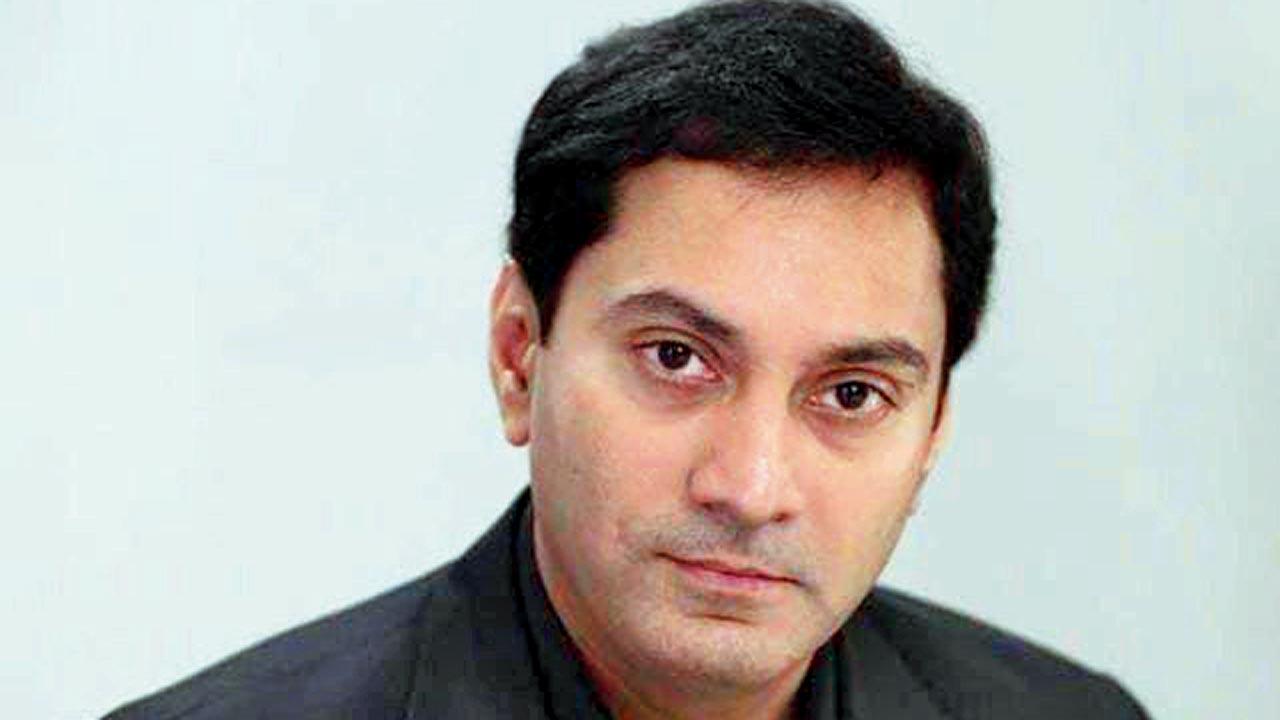 Rizwan Siddiquee, Supreme Court advocate
Rizwan Siddiquee, Supreme Court advocate
Laxman Rawat, who lost his elder brother Shubham last year to a hit-and-run accident, is disillusioned by the legal system specifically because of the leniency of juvenile laws. “He should be tried as an adult,” he says of the 17-year-old who was driving the Maruti Suzuki Baleno that lost control and hit his 21-year-old brother on Malad Link Road. “Do you really think in a city like Mumbai, where kids have so much exposure, a 17.5-year-old would be any less mature than an 18-year-old?”
In this case, an adult friend who was sitting alongside the juvenile driver, had lent the teen the car despite knowing he didn’t have a driving licence. Shubham, newly employed at Motilal Oswal Financial Services Ltd, was on his morning walk on September 26 when the tragedy struck.
The Rawat family has stopped following up with authorities about the case. “The FIR was filed late that evening, even though my brother died in the morning,” says Laxman. “Authorities told us that the laws allow minors to get away with such crimes in about three years.”
The first gatekeepers to set parametres about the gravity of the crime are the police, evidenced by the charges applicable to the culprit. “The responsibility of applying proper and relevant sections of law rests with the police,” Siddiquee holds, adding, “They should do their duty, without any influence. Even within juvenile justice laws, there are specific age divisions to determine how children belonging to different age groups should be treated. A juvenile below the age of 12 years will be treated differently as compared to a person who is 17 years old, even if the offence is the same. The aim and object of the statute is that the maturity of the person has to be considered at the time of the offence.”
In the Pune Porsche case, public outrage was further fanned by reports that NCP MLA Sunil Tingre allegedly ensured that the culprit got “favourable treatment from the police”. And that the teen’s grandfather— Surendra Kumar Agarwal—was connected to gangster Chhota Rajan.
“There have been various instances where political and other pressure have influenced the police,” admits Siddique, “resulting in invocation of lighter charges instead of the appropriate Penal Sections of law, and also filing of a loose and defective charge sheet.”
But that’s not news.
Authorities are accused of colluding with the socially privileged; but then that holds true for any socio-economic class. Bribing the police at every level comes with learning to drive in India, or open any business. Sources tell us that the current rate to get away with an accident caused while driving drunk is R15,000—no case is registered.
A young man in his early 20s, admitted to paying Rs 35,000 after injuring seven people during a night of inebriated driving. He had almost sped away from the spot, but was caught when the car smashed through a police barricade and the licence plate fell off. He was initially charged with attempt to murder, in which a person can face up to 10 years in prison under IPC Section 307. “But I was let off when I offered the police money,” he confesses. Another Mumbai resident, in his early 20s, involved in a similar case but with fewer people left injured was also let go for a fee—R40,000 ensured no FIR was registered against him.
The data on juvenile crime rates in India is alarming: According to the National Crime Records Bureau (NCRB), 31,170 cases were registered against juveniles in 2021—a 4.7 per cent increase from the 29,768 cases recorded in 2020; 76.2 per cent of these, or 28,539 cases involved juveniles aged 16 to 18 years. Mumbai holds the fourth position among metros with the highest number of criminal cases involving juveniles—363 in 2022.
In India, those below the age of 14 years are dubbed children, and as per State party reports submitted to UNICEF, an act is not considered an offence under the Indian Penal Code if committed by a child under the age of seven years.
However, the age of criminal responsibility is raised to 12 years if the child is found to have not attained the ability to understand the nature and consequence of their act. A juvenile is one under the age of 18, and as per the law, a delinquent juvenile cannot be sentenced to imprisonment. If s/he commits a serious offence and is under the age of 14 years, the juvenile court may order the delinquent to be kept in safe custody. Detention in police stations or jails is specifically prohibited.
“The judiciary cannot supersede any law unless held unconstitutional,” says Siddiquee. “A boy may drive proficiently at 14 or 15, but there is a set age limit for obtaining a driver’s license: 18 years. If an individual under 18 is driving, whether under the influence of any substance or not, and an accident occurs, the responsibility falls on the parents and other relevant legal provisions will apply.”
There are precedents though of juveniles facing trials as adults. “The Juvenile Justice Act of 2015 reflects the judiciary’s recognition of the need to address serious crimes committed by juveniles with appropriate severity,” says Advocate Sankalpa Rajpurohit of Bombay High Court. “In the 2013 case Salil Bali v Union of India, the Supreme Court upheld the constitutional validity of trying juveniles as adults in certain cases, affirming the state’s duty to protect society while balancing juvenile rights. These legal references illustrate the judiciary’s careful handling of sensitive, high-profile cases and the established legal provisions for trying juveniles as adults when warranted by the nature of the offence.”
She holds that high profile cases must be handled with sensitivity due to potential societal ramifications. “Future offenders might cite these cases and judgments as precedents to evade punishment,” Rajpurohit says. “Given the high-profile nature of these cases, they may require meticulous scrutiny.”
To child rights activist Sandeep Shinde, there is no grey area in a case involving a juvenile culprit: The law is the law. “Even if the Pune minor was one day shy of turning 18, he cannot be charged as an adult,” Shinde is firm. “No matter what people might feel about the crime, a child cannot be treated as an adult. If this is done only due to public pressure, imagine what the child will think of the judiciary growing up. It will only harden them.” He is founder of the NGO Vidhayak Bharti, based in Goregaon.
Advocate Randhe says the Juvenile Justice Board will always side with the law, and has confidence in the rehabilitation system of the convicted, which also undertakes de-addiction counselling. “Even though it is based on each individual case, if a child is under 18, it is likely that s/he will be tried as a minor,” she says.
Has the psychological report of an accused held back his/her release after the rehabilitation process? “I haven’t seen this happen,” says Randhe. “The minor goes through seven years of rehabilitation and counselling. We ensure s/he is ready to face the outside world.”
The Board also faces challenges. In September last year, the Bombay High Court expressed concern over the large number of cases pending before the state’s Juvenile Justice Boards. “The 10,008 cases pending before the Board and 30,043 cases pending before Child Welfare committees would amount to nullifying the spirit of the Act,” said Justices Nitin Jamdar and Manjusha Deshpande in a September 27 order.
On the humanitarian side, when a juvenile culprit is cognisant of the consequences of his or her actions, and takes responsibility for them, it is of solace to the grieving kin.
As in the case of 32-year-old Irfan Sheikh, who was killed last week at 7 am. The garment business man had stepped out to get pohe for his family, telling his sister-in-law Amreen to not make breakfast. A 15-year-old biker struck Irfan down on Nesbit Bridge in Mazgaon at 7.05 am.
Irfan’s wife, Afreen, is inconsolable; the couple was to celebrate their second wedding anniversary on June 3. A daawat was planned in their honour and the family was checking off their to-do list when the tragedy struck.
Amreen wants it to be known that the minor took full responsibility for the accident. “He didn’t run away,” says the lawyer, “he ensured that my brother-in-law was taken to the hospital. Some media outlets are reporting that he left him for dead; that’s untrue and unfair. I say this with full awareness that Irfan is no more.”
During his three-decade-long career with the Maharashtra Traffic Police, Sanjay Sasane strove to cultivate a healthy respect for the skill of driving among pre-teens. In fact, the Mumbai Traffic Police conducts a one-month safety drive every year, going to schools and colleges to persuade students to not drive until they are of legal age and sober. “We try to make them more aware and conscious,” says Sasane, “But it all comes down to how parents talk to children about getting into a car or onto a bike. However, I have seen parents from the other end of the spectrum as well.”
He gives the example of a case where he confiscated a battery-operated scooty while three children were riding on Worli bridge. “When the mother came later to pay the fine, she thanked me for not letting her son and his friends drive any further.”
But they are outnumbered by parents who fail to understand the gravity or consequences of an under-aged child learning to drive. Disha would have turned 13 on December 24, 2023. “She usually was very excited about her birthday,” says her father, a quiver in his voice. “She was a lively child, and would have awaited her gift eagerly. She loved Holi, Diwali—any festival really. We can’t even attempt to celebrate festivals since she left us. Her energy would rub off on all of us.”
Along with Disha, the faces of Shubham, Irfan, Anish Awadhiya and Ashwini Koshta come to mind with Amberkar’s parting words: “Her enthusiasm was our family’s strength to face life.”
With inputs from Shirish Vaktania
2.5 Cr
Value of Porsche Taycan involved in last week’s Pune crash
31,170
Juvenile cases recorded in 2021
29,768
Juvenile cases recorded in 2020
28,539
Cases against 16-18YOs
Source: National Crime Records Bureau
 Subscribe today by clicking the link and stay updated with the latest news!" Click here!
Subscribe today by clicking the link and stay updated with the latest news!" Click here!








